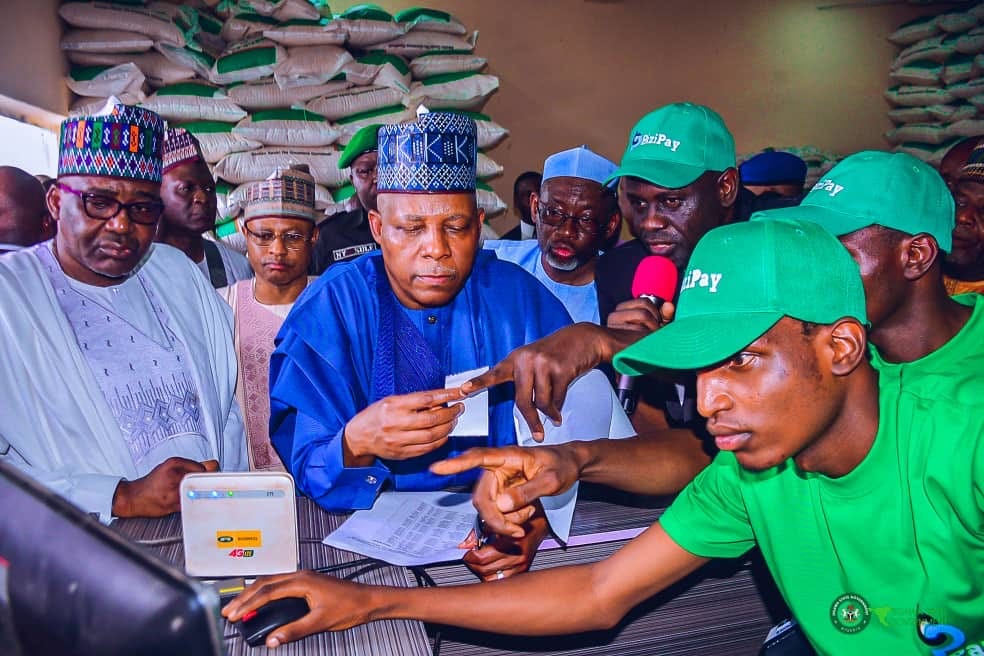🌯Inclusive FinTech Knowledge Bites [Week #60]
Fintava Pay expands financial access in Northern Nigeria, the collaborative future of rural banking in Ghana, and India's nationwide expansion of Digital Banking Units
Hey,
I’m Hugo Pacheco, and this is The Barefoot Economist —a newsletter where, every week, I break down three essential stories on last-mile technology, emerging market innovation, and financial inclusion. Consider it your bite-sized takeaway to stay informed—sharp, insightful, and easy to digest.
This week on The Barefoot Economist:
🔗 How Fintava Pay Unlocks Financial Access in Northern Nigeria
🌾 The future of rural banking isn’t just digital — it’s collaborative!
🐅 India plans to expanding Digital Banking Units Access Nationwide
Enjoy your reading!
🔗 Trust & Tech: How Fintava Pay Unlocks Financial Access in Northern Nigeria

In the realm of financial inclusion, a hybrid approach that combines digital banking services with physical agent networks has proven essential, particularly in regions with low digital literacy and limited infrastructure. This model not only bridges the gap between technology and accessibility but also ensures that financial services are tailored to the unique needs of underserved communities.
The Significance of a Hybrid Banking ModelIntegrating digital banking with physical super agents addresses several critical challenges:
Overcoming Infrastructure Limitations: In areas where internet connectivity is sporadic or non-existent, physical agents provide a tangible touchpoint for financial transactions, ensuring that services remain uninterrupted.
Building Trust within Communities: Local agents, being integral members of their communities, can foster trust and encourage the adoption of banking services among sceptical or unbanked populations.
Enhancing Financial Literacy: agents can offer personalised guidance, helping clients navigate digital platforms, understand financial products, and make informed decisions, thereby boosting overall financial literacy.
“There are people who refuse to open accounts with traditional banks because they associate them with interest-based transactions (…) but when they see a familiar face—a trusted local business or agent—they are more likely to engage with financial services” - Samuel Ojerinde Fintav
Adapting to Local ContextsTailoring banking services to align with local customs, languages, and technological realities is crucial.
Family-Based Onboarding: Incorporating family members into the account setup and verification process leverages existing social structures to enhance security and trust. For example, sending OTPs to multiple family members ensures that account access is both secure and communal.
Local Language Support: Offering services in the predominant local language, such as Hausa in Northern Nigeria, makes banking more accessible and user-friendly, reducing language barriers that often hinder adoption.
Alternatives to Smartphones: Providing ATM cards and utilising basic mobile phones for transaction verifications cater to users without smartphones, ensuring inclusivity regardless of technological limitations.
Fintava Pay's Case Study in numbersThe hybrid banking model not only broadens access but also empowers communities by respecting and integrating their unique cultural and technological landscapes. Fintava Pay exemplifies the efficacy of this:
Rapid Adoption: Within 24 hours of launching a custom banking app for BiziPay, a super agent network in Kano, the platform registered 1,000 downloads, onboarding customers who previously lacked access to digital banking.
Extensive Reach: The company has processed over ₦30 billion (approximately $38 million) in transactions and serves over 100,000 customers, highlighting the scalability of tailored banking solutions.
🔥 Seeking transformative change? My monthly fractional role is reserved for just 8-10 companies annually, offering high-level strategic advisory, go-to-market planning, and growth acceleration. If you’re ready for serious impact, let’s chat — Only 4 spots left!




